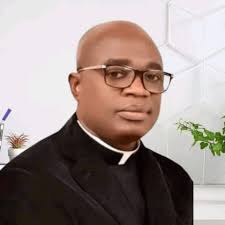
By Tunde Odesola
Situated in a dark groove is a drum never to be beaten. Thin as a strand of hair, the delicate drum transmits sound waves. This drum does not speak; it only listens and understands, even before its owner does. This drum is located deep inside the ear, rightfully earning its name, eardrum.
Sounds travel into the ear canal in waves, vibrating the eardrum, which transmits sounds to the three t,iny bones behind it. The tiny bones are named malleus, incus, and stapes–fragile trinity inside the shrine of sound. Located in the middle ear, these three bones, also nicknamed the hammer, anvil, and stirrup, are collectively called the ossicles, and they are the tiniest bones in human anatomy.
The little bones amplify sound vibrations from the eardrum and transmit them to the inner temple called the cochlea, where the mechanical sounds are converted into electric signals, which are sent to the brain.
Like an expert sound engineer mastering a tape, the brain reads the signals from the cochlea and, for instance, interprets the wah, wah of a crying baby and elicits empathy; transmits the clap of thunder and evokes fear; dissects the promises of politicians to provokes disdain; even as it identifies the blindfold of justice and demands fairness. To beat this drum is to shatter the membrane separating hearing from deafness; it is to wave sound goodbye.
But I know many drums that rejoice when sticks rain fierce strokes on them. Long before the written word wormed its way into print to produce a code of morality, the drum encapsulated society’s moral code,s. The drum instructed, warned, praised, rebuked, prophesied, and cursed. It told the truth absent in a million lying mouths. Please give me a drum; drown the Nigerian political elite.
In Yoruba cosmology, drums are objects of worship because Àyàn Àgalú, the god of drumming, is capable of rewarding or reprimanding drummers, depending on the work of their hands. Àyàn Àgalú is the primordial spirit of drumming and the divine custodian of rhythm. He’s believed to be the first ever deified ancestor to make the drum talk like a human, not just beat.
Every drummer in Yorubaland is called Àyàn, in relation to Àyàn Àgalú’s ancestral origin. For the Africans, particularly the Yoruba, the drum is a link to the past. It is not just the skin of an animal talking in a human voice, no; it is much more than òkùewúré ti o n fo ohùn bi ènìyàn, the drum provides a spiritual communication between the dead and the living.
When things are looking down for the Àyàn, he performs rites on his drums and calls on Àyàn Àgalú for a turnaround. The power of Àyàn Àgalú to change the fortunes of the drummer for good is encased in the saying, “Sèkèrè kii ba won re òdeìbànújé,” which means that the rattling gourd is never found at mournful occasions. It symbolises an expectation that the downturn being experienced by the drummer will fade away as joy is coming.
Aside from the foregoing roles drummers played in societal cohesion in time past, they are also intelligence officers in palaces–processing and disseminating signals, and on the warfronts–inspiring soldiers on courage, patriotism, gallantry and history.
Despite these roles, however, drummers were regarded as the dregs of society, whose reward included water suspension from pap, hence, they were referred to as “Alùlù gbomi èko”.
Many, many years ago, palaces had a retinue of drummers who woke, warned, praised and entertained kings and their royal households. Then, kings were not expected to entertain their subjects by playing the drum for them. But this narrative began to change when Prince Adetoyese Laoye emerged as the Timi of Ede on December 9, 1946, and embarked on a 29-year reign, which terminated in 1975.
Professor of History, Siyan Oyeweso, in his book, “The Quintessential Oba John Adetoyese Laoye I (1946 – 1975): Personification of Royalty and Culture”, describes Oba Adetoyese Laoye as the first Timi of Ede, who had a Western education.
Oyeweso says Oba Laoye, a dispenser, druggist and pharmacist, “Belonged to the tiny club of those Nigerian traditional rulers who historians refer to as ‘Intellectual Monarchs’ or ‘Philosopher Kings’…This class of monarchs has acquired Western education in the opening years of the 20th Century, and also distinguished themselves as authors and historians…”
According to Oyeweso, the father of Oba Laoye I, Prince Oyebisi Omolaoye, was a successful Muslim trader in Togo and a protégé of a white missionary named Dr Greene, who later returned with him to Ede. Prince Omolaoye begot a son and named him Yusuf Adetoyese Omolaoye. “At baptism, Adetoyese was christened John, but because Dr Greene could not pronounce the name Omolaoye properly, he shortened it to ’Laoye,” says Oyeweso.
Throughout his reign, Oba Laoye was a major protagonist of Yoruba renaissance as he upheld the dignity and unity of the traditional institution, says Oyeweso.
In the view of Oyeweso, Oba Laoye was an uncommon king who elevated drumming into an aristocratic art, not minding the view of the palace and society on drumming. He was the author of the signature tune for the Western Nigeria Broadcasting Service Corporation/Western Nigeria Television, (which says) ‘This is Nigeria Broadcasting Service’ (but) which has been variously interpreted as ‘B’olubadan ba ku, ta ni o joye’, ‘Ninu ikoko dudu lati n se’be’, ‘Gomina akoko o n’imu oru’, ‘Ko sionigbese ni bi, lo si ile keji’, ‘Ojegede dudu, inu ta bon’, ‘Belo Gbadamosi Olori Ole’, ‘Eko je’badan lowo, 13 pounds’.
Explaining the significance of drums to the African, the late Alaafin of Oyo, Oba Lamidi Adeyemi, said Yoruba talking drums were unique in their characteristic mimicry of human voice, stressing that no other drums worldwide had such a function. Adeyemi, who said this in an address captured in a viral video, maintained that drums were used for reasons such as teaching, worshipping, informing, news dissemination, intelligence and warfront duties, and entertainment.
“Drums are used in palaces and in the residences of dignitaries. Drummers advise the king about how to behave in public,” Adeyemi said. The close relationship between the king and drummers bred the proverb, “Oba kii mu o nkorin.” But this is not the case with Nigeria’s political class that gags freedom of speech and disregards the Freedom of Information Act.
In a telephone interview with me, cousin to Oba Laoye, Prince Adewale Laoye, says the late monarch picked drumming from the family of his mother, revealing that his own father, Prince Elkanah Olatinwo Laoye, was the Baba Kekere–a synonym for Chief of Staff–to Oba Laoye throughout his reign.
Adewale, who is the founder, Aafin Ilu–Palace of Drums–located in Ede, Osun State, says he established the institution to revamp various Yoruba drums, which are gradually going into extinction.
“My father was the younger brother of Timi Laoye I. Their mother had two boys and a girl, who was the lastborn. I was gifted a talking drum when I was three, and I still have the drum with me to date. It was given to me by my big uncle, Pa Ajao Ayangbayi, from my father’s mother’s side. My grandmother, Iya Odefunke Omoware Ayangbayi, was a drummer from Ile Ologun Compound in Ede,” Adewale explains.
He continues, “I went to some towns and realised they didn’t have a complete drum set like the dundun at their egungunfestival–this was what prompted the idea behind Palace of Drum. Many people tried to discourage me from playing drums, saying a prince shouldn’t be seen playing drums. Thank God for my supportive mother who stood by me, but she didn’t live to see me actualise my dream on drums. Oba Laoye and my father were both choir masters, who invested in music, with my father teaching me the art of music. I see Oba Laoye in my dreams, asking me who would continue the family’s tradition if I stopped?”
Despite the inroads of some monarchs into music, royalty and society still look down on musicians and drummers, in the main. Juju music maestro and Ondo prince, Sunday Adegeye, MFR, popularly known as King Sunny Ade, had to lie to his parents that he had gained admission into the University of Lagos, for him to leave Ondo and pursue his music career in Lagos. King of Fuji and Ijebu prince, Wasiu Ayinde, was luckier as his mother supported him when he decided to go and live with Fuji music creator, Alhaji Sikiru Ayinde Barrister, at a tender age.
It’s not only crowns that frown on princes taking up music as careers; wealthy and educated families also discourage their scions from becoming musicians. Afrobeats superstar, David Adeleke, aka Davido, is an example. His billionaire father, Dr Deji Adeleke, once got him arrested by the police, just to discourage him from singing.
I once had an interview with Deji’s elder brother and first Executive Governor of Osun, Alhaji Isiaka Adeleke, the Serubwon of Osun politics and patriarch of the Adeleke family. In the interview, Serubawon revealed how Davido blew all his school upkeep on a big piano while studying in the US and he had to give him another money, though not as much as the money he blew – just to teach him a lesson.
Culture expert, musician and ewi exponent, Chief Sulaimon Ayilara, aka Ajobiewe, advises, “If you visit a town and there’s no drumming there for three days, please, leave the town,” adding that the use of metals in martial music was a form of drumming too.
It is normal when animal skin talks like humans. But it is strange when animals wear human skin, according to Afrobeat king, Fela Anikulapo-Kuti, in Beasts of No Nation.
Plateau, Borno, and many parts of the North have been turned into killing fields by terrorists, just as other parts of the country have been battling with other forms of killings and insecurity. The hopelessness of the government in tackling security and economic challenges is disturbing; the preoccupation of the government with corruption and politicking while the country boils is heartreaking.
I see more animals in human skin at the helm nationwide than I see real humans. Animals are lording it over human beings. What do you see?









